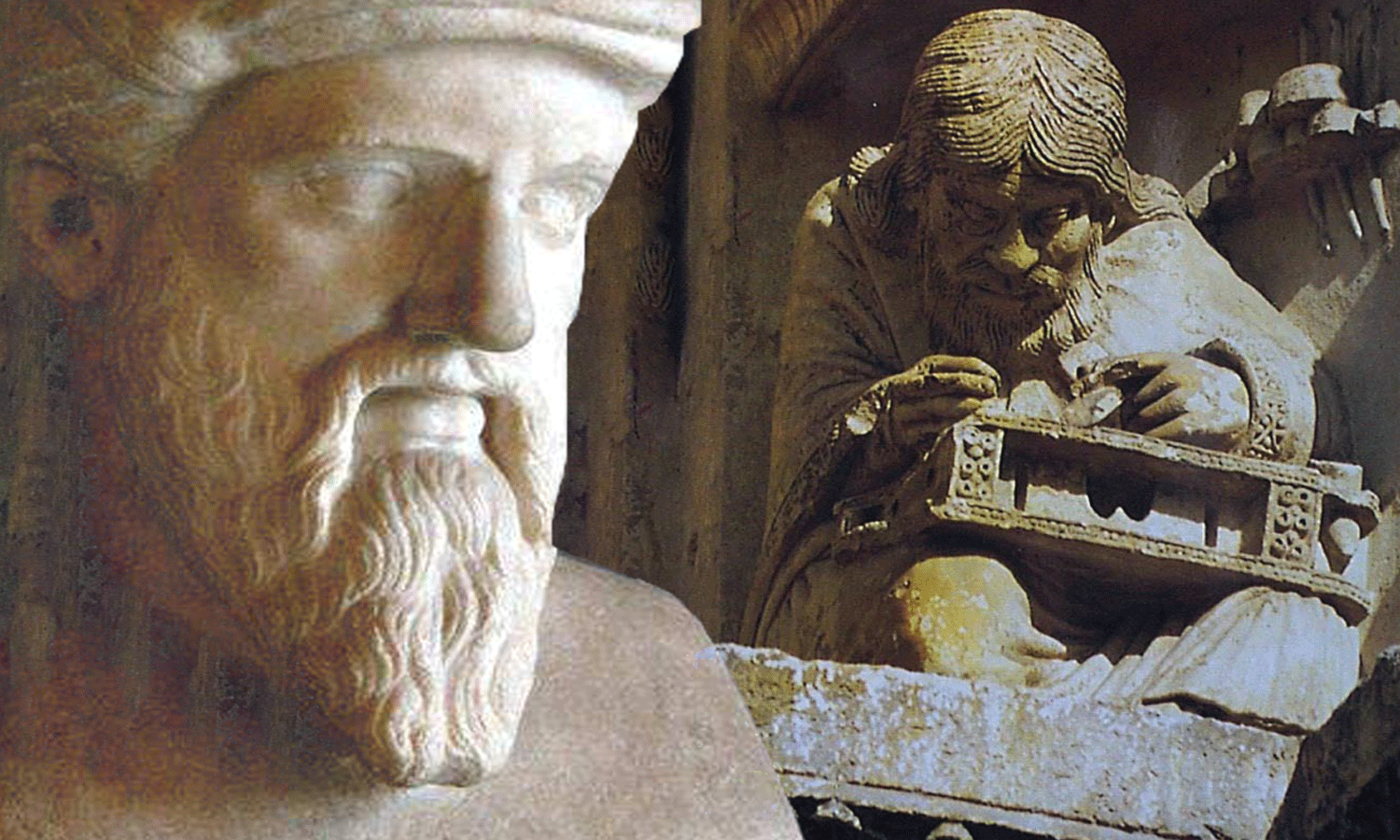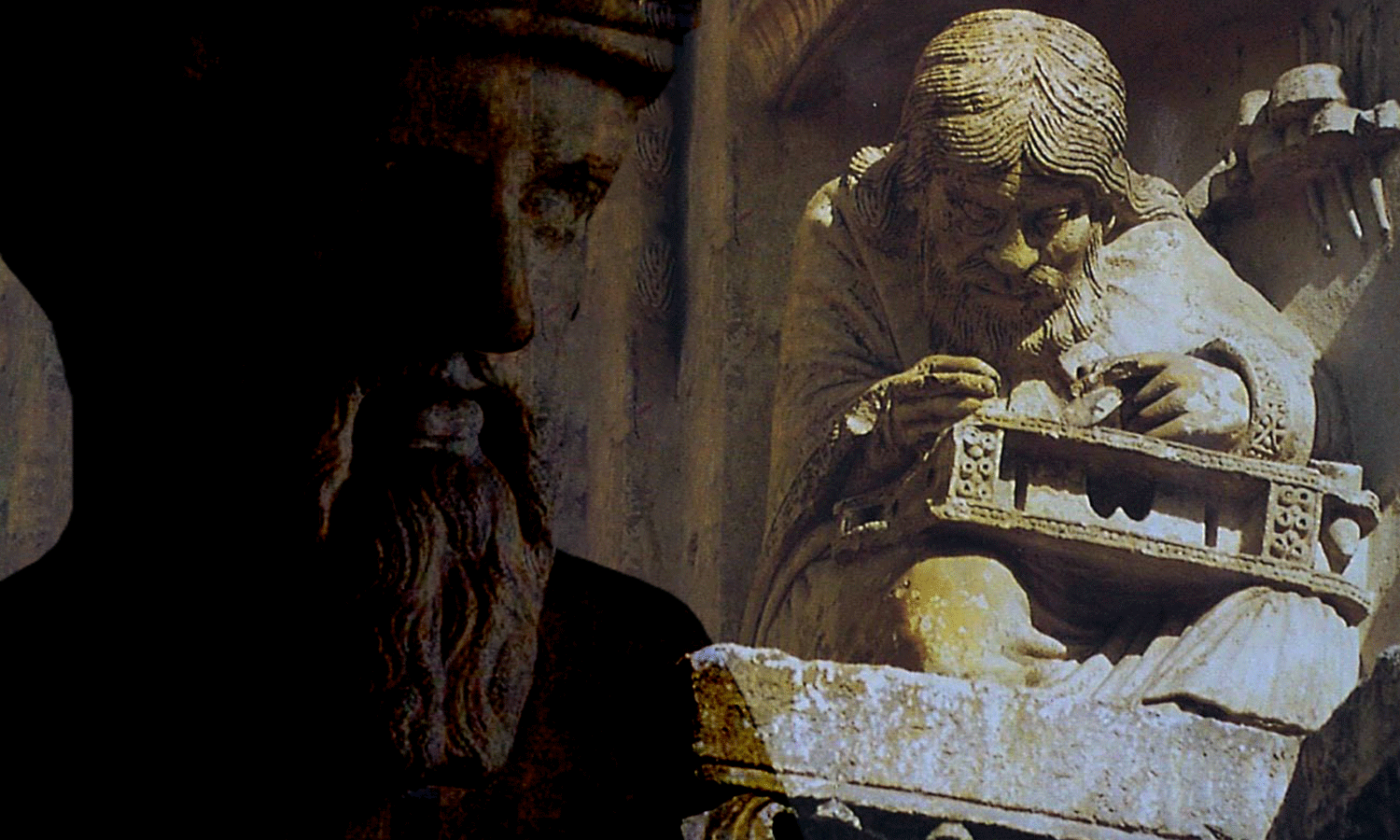
The custom was widespread in Greece, the old writings were searched to extract fragments of the immense knowledge of the ancients, to understand them as best they could and to restore them under his signature to his contemporaries, mostly uneducated and illiterate. Pythagoras did not escape this sad rule, without scruple he signed the works of others.
It is not me who says it, it is Heraclitus of Ephesus, aka the Obscure. “Pythagoras, son of Mnesarchos pushed the investigation further than any other and, having made his selection of books, he has forged his own knowledge: learning and imposture” wrote Heraclitus who openly despises the philosopher of Samos, maybe obscure, but an honnest author of his books. Yes indeed, Pythagoras, the great Pythagoras, the famous Greek scholar who is the origin of the whole – or almost – Greek knowledge, Pythagoras either invented nothing – and particularly not his so-called theorem. He found and fix patiently prior knowledge.
“Logistician Apollodorus said Pythagoras sacrificed twelve oxen because he found that in a right triangle the square of the hypotenuse is equal to the sum of the squares of the other sides.” (source)Diogenes Laertius, The life and work of the great philosophers But today we know that this demonstration had been made long before him, as evidenced by the engraved stone below. You will admit that it is a singular idea, for a learned mathematician, to involve magic, sacrifices and thanksgiving to thank the gods for giving him this discovery. Because Pythagoras was not just a mathematician. He was also a philosopher and leader of a religious movement developed around his person. In any case, he did not invent the theorem that bears his name, as shown by the two faces of this stone engraved long before Pythagoras.

Here the so-called theorem of Pythagoras and a method for calculating the square root are shown in these Babylonian tablets dating from 1900 to 1700 AEC – few tablets that contain only geometric patterns. The Babylonian scribes knew the theorem called “Pythagorean” twelve centuries before his birth, and they already had a precise method of calculating square roots.
Pythagoras is claimed, as Herodotus, having received in Egypt mathematics and geometry that he aired later in Greece. “The pyramids, especially the large, are a stone Bible. In the eyes of Greek initiates, they codified by their measurements and shapes (triangles and squares) mathematical sacral Pythagoras had received in Egypt. It is by the Egyptian priests directly, Herodotus taught his side that the square on the height of the Great Pyramid is equal to the surface of each of triangular faces.”
So the Greek Pythagoras has stolen the all stuff to the Celts and the Egyptians? Looks true. Of course, Pythagoras reshaped the old knowledge. His merit is to have found these ancient pearls, to have recognized their value, and to make circulate again this ancient knowledge.
Strange time than his! Everything happens as if the ancient world was awakening from a long nightmare. Like the end of a phase of barbarism, for example. After a MadMax style episode that would have followed the disappearance of an earlier civilization. In this era of reconstruction the world needed visionary as Pythagoras or Cayce.
“Pythagoras delivered his teachings in public. However, he reserved the details only for a smaller audience of Pythagoreans. It is these who form the sect led by the philosopher. Those who were allowed to listen outside were named – with some contempt for some – the Pythagoreans. The privileged Pythagoreans had to live in common and share all their property, unlike the Pythagoreans who could continue to lead an independent life. Moreover, a certain number of rules, called symbols, had to be respected by the Pythagoreans. For these reasons, it is likely that they formed a sect. The symbols concerned all kinds of aspects of everyday life, and some of them are particularly exotic. Here are some examples, from the Protreptic of Jamblique:
Be master of your tongue before others, out of respect for the gods.
Stay away from any vase that contains vinegar.
When you see a man take on a burden, help him; but do not intervene in the landfill.
First shoe the right foot, but first off the left.
Raise a rooster, but be careful not to sacrifice it.
Because it is dedicated to the Moon and the Sun.
Do not wear a ring.
Another interesting symbol is the following:
Do not eat animated beings.
Indeed, the Pythagoreans showed great respect for animal life, especially because they believed in metempsychosis. It is a doctrine, perhaps inspired by Pythagoras by his stay in Egypt, which consists in believing that at his death, the soul of a living being passes into the body of an animal while waiting for the next reincarnation (transmigration of the soul).” (source)
Astral travel often enabled him to visit the Akashic records, and good for us. Through an initiation in Celtia or Egypt under Isis fire, he gained total knowledge of himself and many divine powers, such as to move freely on the timeline, and so to perfect his knowledge with the ancient masters missing for ages. Diogenes Laertius tells his childhood : “As he was young and studious, Pythagoras left his homeland and was introduced to all Greek and barbarian mysteries.” Barbarian is everything that is not Greek. Unfair enough … Laertius says that Pythagoras went to Egypt, Chaldea, and studied with the Magi and the Druids. Full academic curriculum. Afterwards, he became a time master. Others have had this opportunity, and some will have yet. This ability was the subject of an urban myth started by Pythagoras himself.
Pythagoras so recounted his story: first he was the son of Hermes, to whom he could ask anything he wanted, except immortality. He therefore requested that, alive or dead, he would remember everything that happened to him. Thus Pythagoras remembered every detail of all his past lives. As for Plato, poor thing, he would have such a talent, that could avoid some blunders …
![Théorèmes, par SKI, Stef Kervor Infographie pour Eden Saga - d'après : Buste de Pythagore, By Mallowtek (Own work) [CC BY-SA 3.0 (https://creativecommons.org/licenses/by-sa/3.0)], via Wikimedia Commons - https://commons.wikimedia.org/wiki/File:Buste_de_Pitagore_(parc_pincio).JPG](https://eden-saga.com/wp-content/uploads/pythagore-buste-1900X1140px.jpg)


